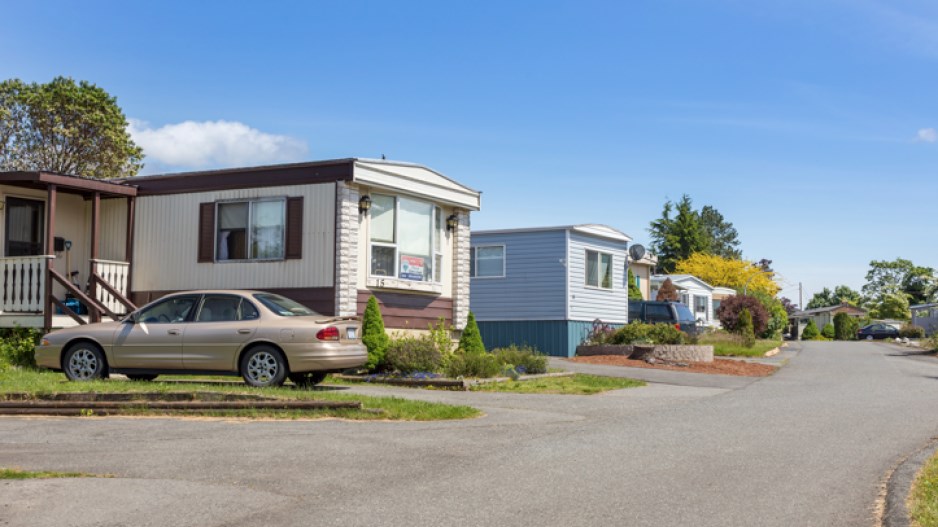Mobile home parks are attracting both institutional buyers and small-town investors because they “are recession proof”, according to Eugen Klein, a former Real Estate Board of Greater Vancouver president, and a specialist in modular home parks with the Klein Group of Vancouver.
When the economy turns down, Klein explained, the affordability of modular home parks helps attract new tenants.
“For the price of a truck, a person can buy a modular home,” Klein explained.
Mortgage manager Abdul Safi of TD Canada Trust in Vancouver agrees that modular homes offer an “extremely affordable” alternative for homebuyers in Metro Vancouver, where a recent Royal Lepage survey found the average bungalow now sells for more than $1 million. Most of TD’s modular home loans are for less than $80,000, he said.
Safi added that modular home buyers can qualify for a chattel mortgage, which are used to buy modular homes, easier than with a conventional mortgage because of the much lower loan values. The chattel mortgages offer the same financing options as a conventional home loan and include mortgage insurance, most often from Canada Mortgage and Housing Corp.
Safi said modular homes account for less than 10 per cent of his office’s mortgage loans, despite the affordability factor. He doesn’t see that changing.
“Vancouver has developed a class society based on housing prices,” Safi said. “People don’t want to say they live in a trailer park.”
Still, large investors apparently see a stronger road ahead for modular homes. In 2010, British Columbia’s biggest pension fund, the BC Investment Management Corporation (BCIMC bought Parkbridge Lifestyle Communities Inc., Canada’s largest modular park developer, for $790 million. This year, Parkbridge launched an “enhancement program” in three older parks it bought two years ago in Surrey and White Rock in a bid to attract more families and retirees to modular housing.
Two years ago, Toronto-based Canadian Apartment Properties Real Estate Investment Trust (CAPREIT), one of Canada's biggest landlords with 31,000 rental units, bought 12 modular home parks in B.C., Alberta, Saskatchewan and Ontario for $72.3 million.
It isn't that the mobile-home parks offered fancy property: the sites include the 136-pad Lynwood Place in Slave Lake, Alberta, and 130-unit Poplar park in Gibsons, B.C, neither of which could be described as upscale housing.
It is the cash flow potential, not esthetics, that attracted CAPREIT's acquisition squad, which has been quietly buying up mobile-home parks across the country since 1997 (they now make up more than 10 per cent of the REIT's portfolio).
According to CAPREIT, the typical vacancy rate at the parks it purchased is less than 1.5 per cent.
Mobile-home parks provide "secure and stable long-term cash flows, high occupancies, steady increases in average monthly rents and significantly lower capital and maintenance costs [when compared with apartment buildings]," explained Thomas Shwartz, CAPREIT president and CEO.
Unlike tenants in rental apartments, residents in manufactured-home parks own their own home and lease the lot it sits on for a monthly rental charge, usually around $300 to $450 per month.
Klein said few mobile home operators sell because the parks offer consistent returns and turnovers are low. “There are 937 modular home parks in B.C. and only 25 to 35 sell every year,” Klein said.




